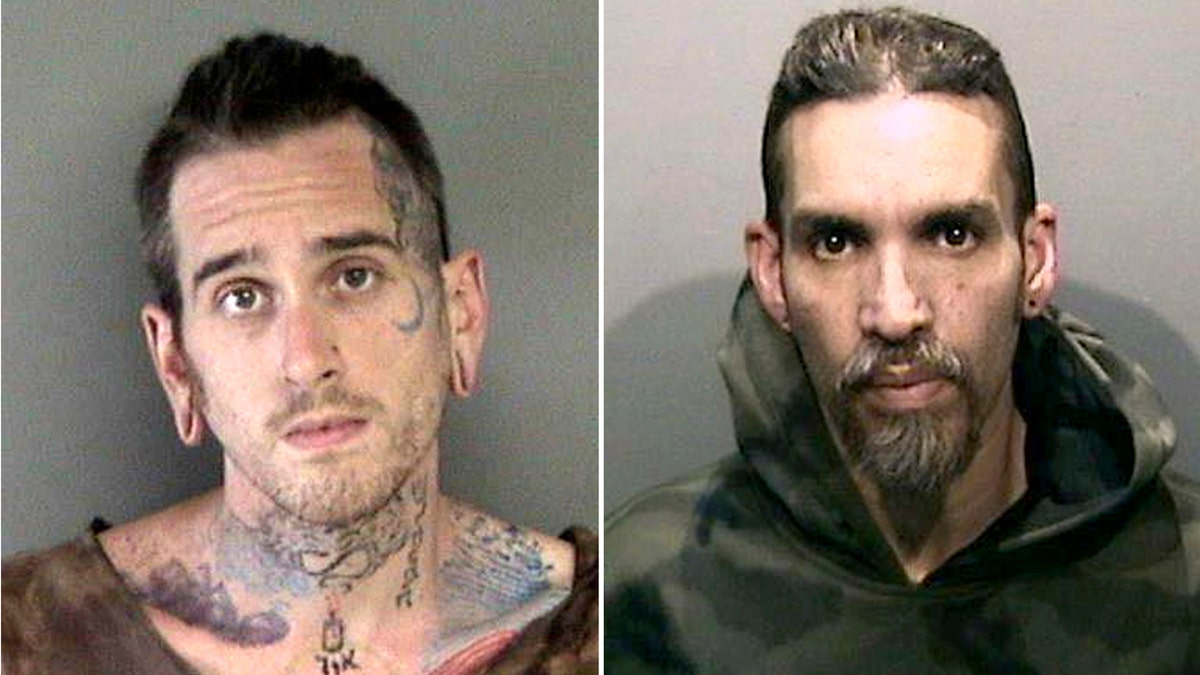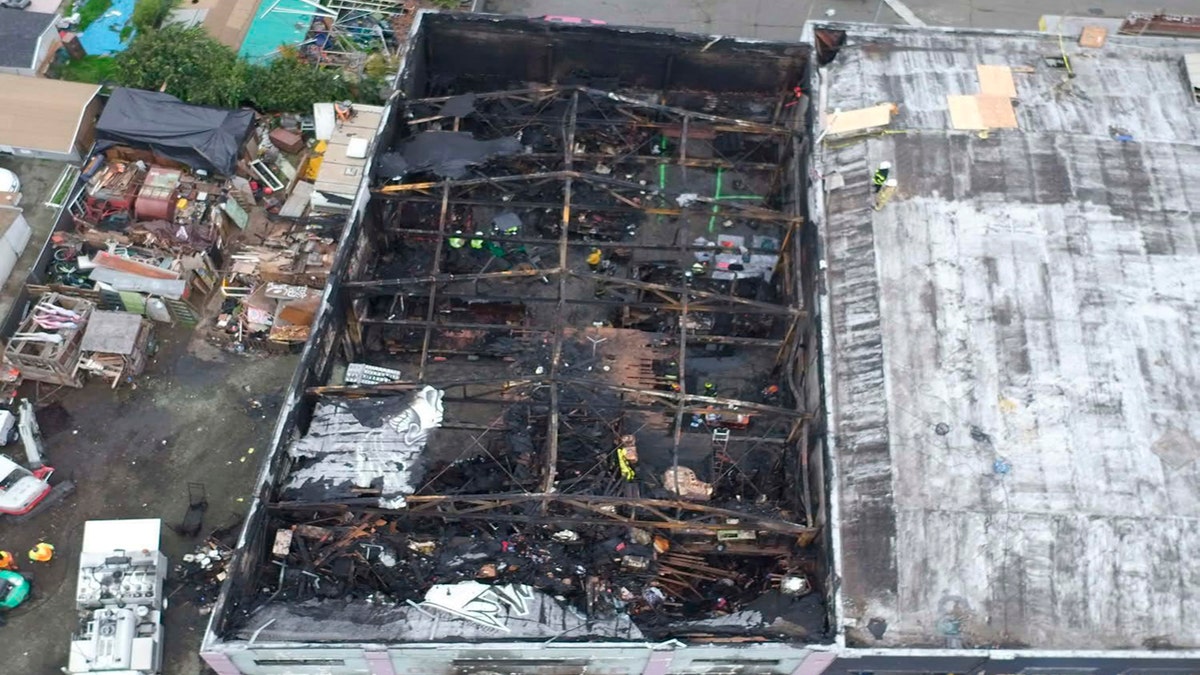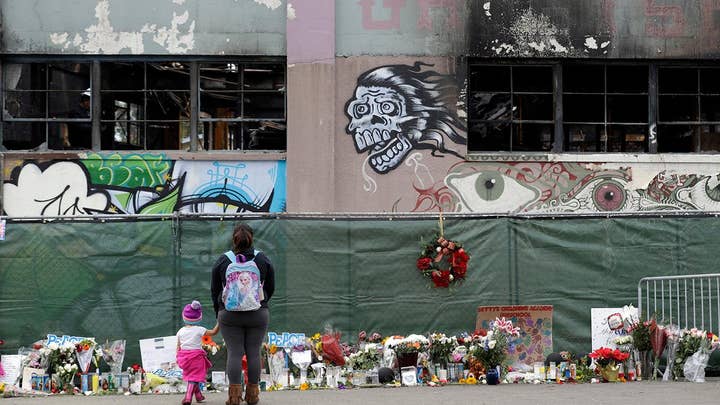
Booking photos released by the Alameda County Sheriff's Office shows Max Harris, left, and Derick Almena, at Santa Rita Jail in Alameda County, Calif., June 2017. (Alameda County Sheriff's Office via AP)
A judge in California on Friday rejected the plea deals of two men who were charged with 36 counts of involuntary manslaughter after the "Ghost Ship" fire in 2016.
Judge James Cramer said Derick Almena, 48, didn't accept "full responsibility and remorse" for the fatal blaze that that occurred during an unlicensed concert at the "Ghost Ship," a dilapidated warehouse in Oakland that was used as an art space.
Prosecutors have referred to the building as a cluttered "death trap."
In court on Friday, Max Harris, 28, apologized to the families of the victims but told them he didn't expect forgiveness.
"I know nothing I can say will come close. I'm sorry. ... You're in my prayers and will be for the rest of my life."
"I know nothing I can say will come close. I'm sorry," he said. "You're in my prayers and will be for the rest of my life."
The plea deal had called for Almena to be sentenced to nine years in prison and Harris to six years.
The judge said he found Harris to be sincere but because the plea bargain was for both Harris and Almena, both pleas were rejected.
The men could have been released from prison after serving just half their sentences, which is typical for California inmates who keep a good disciplinary record.
Relatives of victims who died in the blaze had slammed the proposed sentences as too lenient.
Susan Slocum is the mother of Donna Kellogg, who was killed in the fire. She told the Bay Area's Fox 2 KTVU that Almena and Harris "got off easy."
"Electric shock went through me. ... I fear this plea will set a bad precedent."
"Electric shock went through me," she said. "I fear this plea will set a bad precedent."
Almena told the victims' families that he believes he should have died in the fire and that he was "guilty for believing we were safe."
"Forgive me, if you can," he said. "If I could give you my children's lives, I would."
Almena and Harris could face life in prison if convicted at a trial. They already have spent a year behind bars.
Authorities have alleged Almena rented the warehouse and illegally converted it into an entertainment venue and residences before the fire. Harris was accused of helping him collect rent and schedule concerts.

Undated file photo provided by the City of Oakland shows inside the burned warehouse after the deadly fire that broke out on Dec. 2, 2016, in Oakland, Calif. (City of Oakland via AP)
Prosecutors said the two men had turned the warehouse into a residential "death trap" by cluttering it with highly flammable knick-knacks, blocking the building's few exits and failing to make adequate safety precautions before inviting the public inside.
Investigators from the U.S. Bureau of Alcohol, Tobacco, Firearms and Explosives said they were unable to determine a cause of the blaze.
Victims' relatives allege in lawsuits that the Oakland Fire Department failed to inspect the warehouse annually as required and that inspectors would have discovered the illegal conversions.
The lawsuits also claim Pacific Gas & Electric Co. failed to properly monitor, inspect and repair electrical equipment that provided power to the warehouse.
PG&E said in a statement that it cooperated with the investigation and that a review of its records found no electrical problems at the building in the 10 years before the fire.
The Associated Press contributed to this report.









































